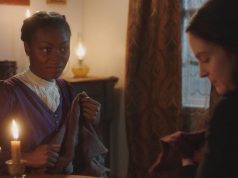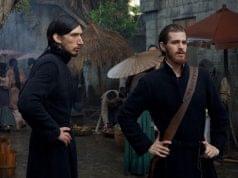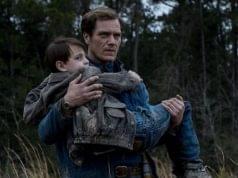In speaking of Elder Dalton, the hard-working missionary played by Richard Dutcher in “God’s Army,” someone says, “He means well; I think he tries a little too hard.”
I jotted that line down because I knew there was a chance the sentiment could wind up applying to Dutcher himself — star, writer and director of the first major motion picture about Mormon missionaries.
Could it be that “God’s Army,” while full of good intentions, would come off as just another preachy, overblown seminary film that Mormons would watch because it’s about them, without regard to whether it’s any good or not?
It could have been that way. But it’s not. “God’s Army” is the real deal, a funny and touching fictional story about several Los Angeles missionaries, and it manages to be realistic as well as entertaining, and uplifting without (for the most part) becoming emotionally manipulative.
In other words, this movie is actually GOOD.
At the center of the film is Elder Allen (Matthew Brown), a brand-new missionary who, while a life-long member, is unsure of his testimony and whether he wants to be on a mission. (He tries to go home the first night.) His trainer is Elder Dalton, a 29-year-old former medical student, and a convert who is, as they say, “on fire” for missionary work. He has Allen tracting even before dropping his luggage off at the apartment.
They share an apartment with four other missionaries. The practical jokes and general levity among the six rings just as true as the “OK-let’s-get-down-to-business” attitude that eventually prevails. Furthermore, the investigators’ concerns, the reactions of people on the street, Dalton’s never-say-die spirit and Allen’s sweet-faced innocence all remind a returned missionary of specific people and circumstances he or she knew while out in the field.
It shouldn’t surprise me that mission life is portrayed so realistically — after all, Dutcher did serve a mission himself — but it does. Maybe that’s because few other films, including (especially) ones made by the LDS Church, have ever done a good job at showing what life as an Elder is really like. They tend to focus on the positive aspects, leaving aside the fact that the job is often more painful than pleasant.
For the most part, “God’s Army” portrays missionary life the way it is: You get out of it what you put into it (that is, the happy missionaries are the ones who are working hard, and with the Spirit), but even when you’re doing what’s right, you’re still in for some heartache.
Missionaries aren’t perfect, either. Here, Elder Kinegar (Michael Buster) reads too much anti-Mormon literature, eventually ruining his fragile testimony. Elder Sandoval (Luis Robledo) flirts with a cafe waitress. Sister Fronk (Jacque Gray) is haughty. Dalton loses his temper. Allen doodles in his notebook instead of writing in his journal. This ain’t exactly the “Called the Serve” video.
While “God’s Army” is realistic, it is by no means a documentary. A few bits of dialogue really are cheesy, Dalton’s initial use of his “let’s do some good” slogan being the most flagrant example. And most of the stories wrap up neatly — a little too neatly, in fact, with almost no investigators left unbaptized. (The film focuses more on the missionaries than on their converts — wise, since that’s where the really interesting and true-to-life stories are.) The few threads that are left tangled seem to be left that way mainly so no one can accuse the movie of wrapping EVERYTHING up nicely.
One event late in the film involving the healing of a young man could have come off as unbelievable; in context, though, and as crafted with finesse by Dutcher, it works perfectly. The Mormon side of me cried because it felt the Spirit; the film-critic side of me cried because of the beautiful way in which the film had set up the characters and led up to the moment.
Another major event, however — the one that is allegedly the emotional climax of the movie — seems not just unrealistic, but unnecessary. The tears there come because of emotional manipulation, not because of successful filmmaking. It’s a shame a film this good would resort to something so amateurish in an attempt to jerk tears out of people.
Elder Allen’s trial of faith — seeing Kinegar lose his testimony while already unsure of his own — is what gives the film its real emotional climax. Though for a while Allen seems to exist merely so the other characters have someone to tell their backstories to, here he finally takes center stage, seeking answers for himself in a scene with details that should subtly remind LDS viewers of Joseph Smith’s First Vision.
The acting is solid all the way around, with Matthew Brown’s sweet, understated performance as Elder Allen pulling more weight than you might give him credit for, since he spends a lot of time just standing around, watching. Look at him, though: There’s more going on than you think. And Dutcher plays Dalton with amazing sincerity. By the end, his “let’s do some good” line no longer seems trite, because you can tell Dalton really means it.
Will non-Mormons like this movie? I think they might. It is genuinely interesting, and while a few bits of terminology might fly past them, the stories are compelling and the characters generally well-drawn. When the film does bring up LDS doctrine, it’s done without a soapbox, so no one will feel like they’re being force-fed the discussions.
Will Mormons like this movie? Oh, yeah. Many of them would like it anyway, just because it shows Mormons in a positive light and doesn’t have any swearing. But for those who actually want to discern good movies from poor movies, this one is good. It’s a triumph in the category of “films about Mormons,” and as a regular old movie, judged like any other, it gets a little awkward, fumbles here and there with its stories, but ultimately does extremely well for itself.
B+ (; )





